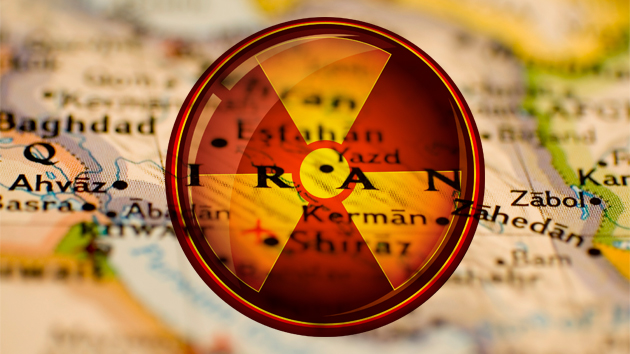by Adam Kredo • Washington Free Beacon
Two airlines sanctioned by the United States for enabling Iran’s global terrorist operations appear to have played a central role in moving illicit missile components from Ukraine to the Islamic Republic, according to information obtained by the Washington Free Beacon.
Ukrainian authorities confirmed this week they had seized a shipment of missile system components bound for Iran, which could put the Islamic Republic in violation of international bans prescribed under the nuclear agreement.
Video of the seizure show Ukrainian authorities uncovering 17 boxes of missile parts bound for Iran and meant to be used in its Fagot anti-tank guided missile system.
Sources familiar with the incident told the Free Beacon that the airlines involved in this illicit activity have long been sanctioned by the United States for providing support to Iran’s global terror network. The reversal of longstanding economic sanctions on Iran provided under the nuclear agreement has boosted this activity and strengthened Iran’s illicit weapons pipeline, according to these sources.
Iran’s use of commercial airlines to import weapons has been well documented over the years. This latest incident could complicate efforts by global airplane manufacturers Boeing and Airbus to complete landmark deals with the Islamic Republic that are fiercely opposed by many in Congress.
The Free Beacon disclosed late last year that Iran secretly has been using commercial aircraft to smuggle weapons to terrorists supporting Syrian President Bashar al-Assad in that country’s bloody civil war. Many of the commercial planes flown by Iran were originally sold by the United States and later repurposed by Iran for use by its Air Force and Revolutionary Guard Corps, or IRGC, sources said.
“Iran was caught red-handed trying to import military hardware, including infrared guided anti-tank missiles,” Rep. Peter Roskam (R., Ill.), a vocal opponent of Boeing’s efforts to sell new planes to Iran, told the Free Beacon. “This is yet another example of the Islamic Republic using commercial aircraft for military purposes. Airbus and Boeing cannot claim ignorance on this—the Regime’s behavior is on full display before the world.”
The exposure of this illicit network in Ukraine demonstrates that Iran continues to use commercial airlines as cover for its movement of arms and other illicit materials, sources said.
The weapons were found onboard planes operated by Ukraine’s UM Airlines, which officially partners with Iran’s Mahan Air. The United States has sanctioned both carriers for providing support to Iran’s terror network, including the transportation of weapons and resources to the terror group Hezbollah, an Iranian proxy group.
Business between UM and Mahan reached its highest levels following the Iran nuclear agreement, when the Obama administration lifted longstanding economic sanctions on Iran. Removing the sanctions paved the way for the airline partnership and the multi-billion dollar trade deals between Iran, Boeing, and Airbus.
Mahan officially entered the Ukrainian marketplace in 2016 and now partners with UM on daily flights into Tehran.
While the removal of sanctions under the Iran deal helped to legalize business ties possible between the two airlines, they continue to carry out illicit activities, as highlighted by the missile shipment discovered this week.
Experts say there is no way to know how much illegal activity the two carriers have engaged in during their partnership.
“Authorities in Ukraine should be commended for seizing the weapons shipment, but when Ukraine asks the United States for economic and military assistance, the least it could do is not allow airlines, sanctioned for their support of the Assad regime and the IRGC, to operate from their soil,” Boris Zilberman, a regional expert and deputy director of congressional relations at the Foundation for Defense of Democracies, told the Free Beacon.
Boeing and Airbus should be paying close attention to the situation developing in Ukraine, according to one senior congressional adviser, who told the Free Beacon that the Trump administration would take sanctions enforcement more seriously than the Obama administration. The two airlines could find themselves ensnarled in sanctions violations if they move forward with deals to sell plans to Iran, the source said.
“No one is surprised that the Iranians are running weapons literally any way they can. Not even the Obama administration ever claimed that Iran stopped using civilian airlines like Iran Air for military uses,” said the source, who works with Congress on sanctions enforcement issues. “If I was Boeing or Airbus, I’d be worried about a knock on the door from Trump administration sanctions enforcers sooner rather than later.”
A State Department official was not able to provide information as to whether the missile discovery violates international agreements governing the nuclear deal.
“We’ve seen these reports but we do not have any further comment at this time,” the official said.
Emails and phone calls to the Ukrainian embassy in Washington, D.C., seeking comment were not answered.
